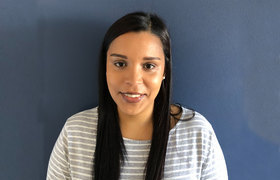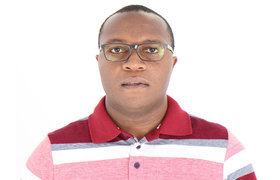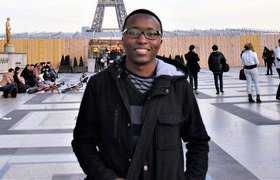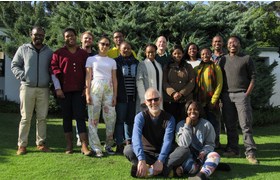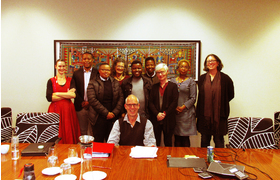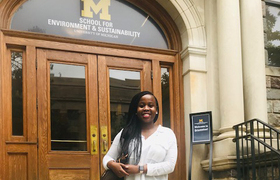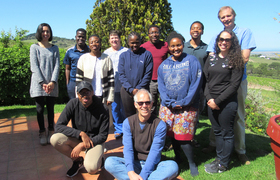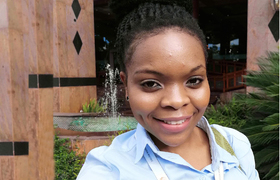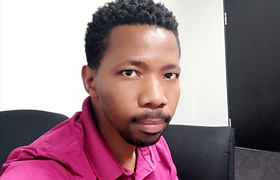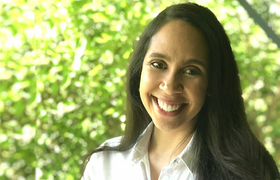How do youth find their place in the world?
07 September 2017 | Story Yusuf Omar. Photo Supplied.
A UCT contingent’s July 2017 trip to Japan kick-started a research project that explores how citizenship is experienced and claimed by young people in South Africa and Japan.
In 21st century South Africa and Japan, young people have emerged as a significant community for analysing contemporary transformations, with their capacity to negotiate warmth and hospitality between social continuities and change in a globalised, interconnected world of local and global hierarchies.
The basic question relates to how South Africans and Japanese build on citizenship to deal with the many challenges that the weakness of the state, economy and the main aspects of the ongoing processes of globalisation provoke. The group, then, are exploring how South Africans and Japanese negotiate belonging and democratic participation, along with the tensions and possibilities of the competing demands of tradition and modernity.
This includes asking how young people develop new modes of citizenship that allow them to maintain an active attitude despite the permanent difficulties of finding a place in societies that may not have one for them.
In particular, the project will explore how they use information and communication technologies to enhance their agency and explore the possibilities and limitations of citizenship. Thus, the focus is on the strategies used by people to imagine possibilities and biographies as citizens.
Overall, the project will develop and establish a publication series on youth citizenship in collaboration with major publishers in Africa and Asia.
Rethinking citizenship
The delegation comprised Professor Nyamnjoh (anthropology), Professor Harry Garuba (African studies), Ayanda Manqoyi (anthropology) and Zuziwe Msomi (African studies).
On their travels, they visited Shitennoji University for a workshop. There, Nyamnjoh delivered a talk titled “Rethinking Citizenship in 21st Century Africa”.
He challenged the idea of the African citizen as an autonomous, rights bearing individual. Rather the African citizen often has intermediary solidarities and loyalties between themselves as an individual and the state. Often the ties are not by choice but by blood, and the state is caught betwixt and between corrupted cultural tradition and blighted modernity.
The lived experiences of the African citizen thus suggest that we rethink citizenship beyond limited and narrow ideas of freedom as provided by constitutions, and our relationship with the state, Nyamnjoh argued.
The team also visited residents, museums and shrines on Sado Island, where the interviews they conducted with locals delighted both the South African and Japanese scholars. In contrast to Sado’s quiet and feeling of closeness, a tour of Tokyo included markets, central shopping areas and business districts.
“Here a citizenship of an entirely different nature was explored through architecture and the embodiment of youth culture,” said Msomi. “Modernisation and traditional culture existed side by side from the yakuta – informal traditional Japanese dress – and accommodation in the small quarters of labourers who contributed towards the modernisation of Japan in the 1990s, to the modern, brightly lit shopping centres, and the culture of gaming literally spilling out into the street.
“It was on this last leg of the visit, as staff and students had a concluding meeting, that it became increasingly clear how important international collaborative work was to effectively and efficiently establishing links on the ground to do research.”
 This work is licensed under a Creative Commons Attribution-NoDerivatives 4.0 International License.
This work is licensed under a Creative Commons Attribution-NoDerivatives 4.0 International License.
Please view the republishing articles page for more information.
New Generation of Academics Programme (nGAP)
UCT has responded energetically to the New Generation of Academics Programme (nGAP), an opportunity provided by the Department of Higher Education (DHET) to build a new generation of black South African academics. The DHET’s 2015 vision document, “Staffing South Africa’s Universities Framework: A comprehensive, transformative approach to developing future generations of academics and building staff capacity”, proposes a suite of initiatives to address the challenge, with nGAP being the major instrument to increase the numbers of black South African academics.
The programme “involves the recruitment of highly capable scholars as new academics, against carefully designed and balanced equity considerations and in light of the disciplinary areas of greatest need”. The nGAP scholars are appointed into permanent positions where from the outset their conditions are customised to ensure their successful induction into the ranks of established academics.
The DHET provides funding over a six-year period to support the appointment of an nGAP lecturer, and their time is protected to provide the best possible opportunity for the completion of a doctorate degree in the shortest possible time. Once the degree is completed, the nGAP lecturer’s teaching commitments are steadily increased until they shoulder a full teaching load.
Since the first advertisement for nGAP posts in 2015, UCT has been awarded 17 nGAP positions: 5 (Phase 1), 4 (Phase 2), 3 (Phase 3) and 5 (Phase 4). These are distributed across all faculties.
UCT’s nGAP scholars operate as a single cohort, managed and coordinated by Dr Robert Morrell. Lecturers meet for quarterly meetings, writing retreats and various capacity-building activities all designed to support the completion of postgraduate qualifications (particularly doctorates) and to develop records of achievement that will testify to their emergence as self-standing, excellent academics. Each lecturer is mentored by a senior scholar, who provides support and guidance on the challenges that routinely face academics.
The nGAP manager sets great store in building the cohesion of the cohort and encouraging the establishment of new UCT networks while producing a collaborative, mutually supportive and embracing work culture.
According to Dr Morrell, “This group of academics will lead UCT in 15 to 20 years’ time ... Their vision of excellence, of being African and South African, of serving a wider community and producing knowledge for the planet, the continent and the country, will power UCT in years to come.”
Newsletters
In the news
